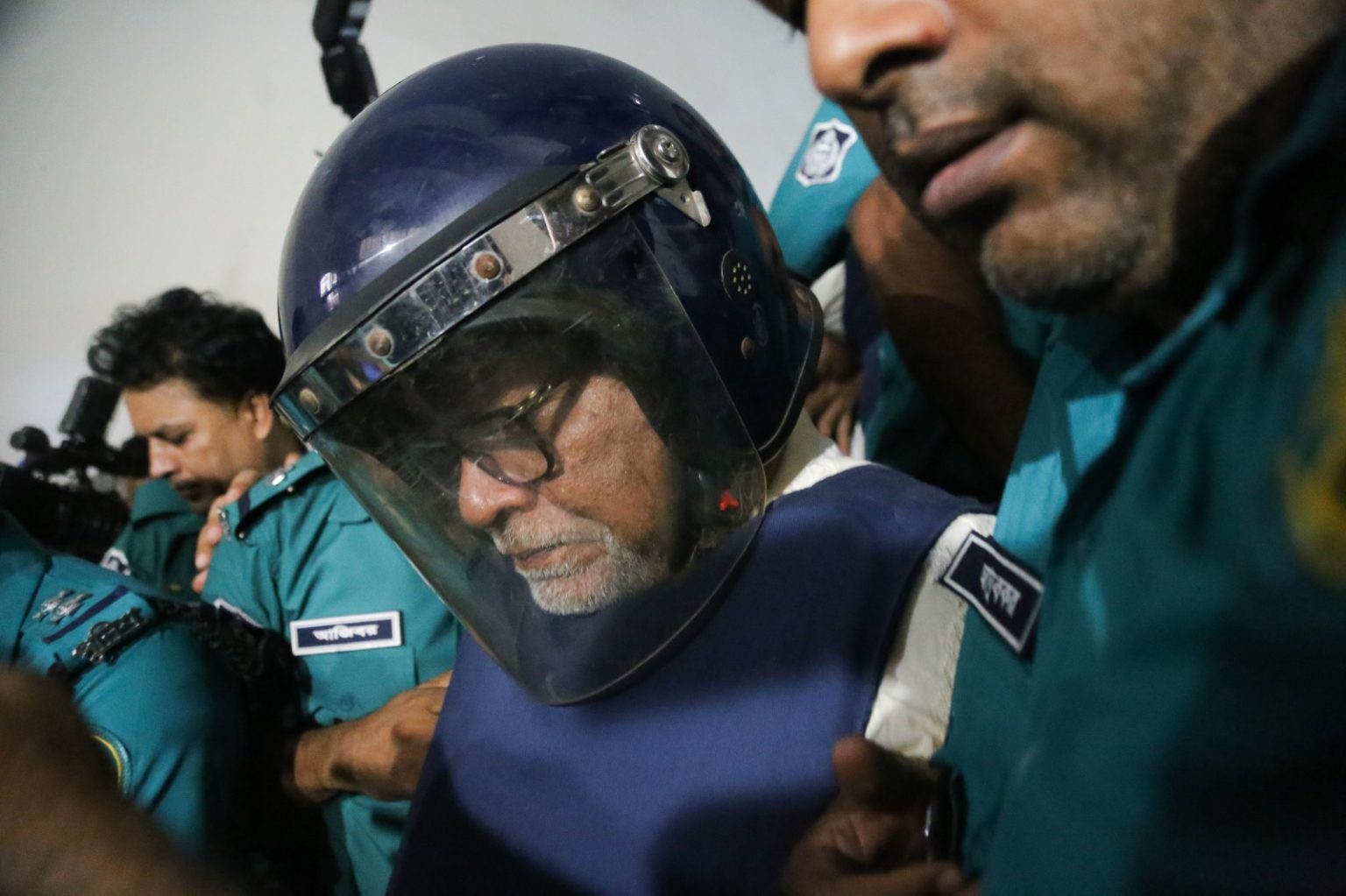While former chief election commissioner (CEC) KM Nurul Huda can be blamed for ruining the country’s voting system and allowing deposed prime minister Sheikh Hasina to retain office, his physical assault by a mob is completely contradictory to the spirit of the rule of law. This is yet another worrying example of mob violence, underscoring the interim government’s inability to rein in lawlessness.
Once entrusted with overseeing national elections, Huda found himself at the mercy of a crowd apparently angry about his role in the 2018 parliamentary polls, which were marred mainly by nighttime vote rigging. The irony is striking: a former custodian of electoral democracy falling victim to the breakdown of lawful governance.
On Sunday, hours before the BNP filed a case charging him and 23 others with electoral irregularities in the parliamentary elections held in 2014, 2018, and 2024, a group of BNP activists assaulted him and even humiliated him by placing a garland of shoes around his neck, with a video of the incident going viral on social media. He was eventually rescued by the police and later shown to have been arrested in the case.
Since the fall of Hasina’s Awami League government in August last year, mob violence has been a festering problem in Bangladesh, often fuelled by political vendettas, misinformation, or public frustration with institutional failures. Many have since fallen victim to mob attacks, sparking widespread criticism and condemnation. However, when prominent figures, such as a former CEC, are targeted, it sends a dangerous signal: no one is safe from unruly mobs.
The consequences of mob violence on law and order are far-reaching. First, it undermines the authority of law enforcement agencies. When mobs can operate with near-impunity, police credibility and ability are brought into question. People begin to believe that brute force, rather than legal recourse, is the effective way to address grievances. This creates a vicious cycle where more individuals resort to violence.
Second, mob violence undermines the rule of law—the bedrock of any democratic society. If even individuals who once occupied high offices are vulnerable to extrajudicial punishment, it signals that institutions have failed.
Furthermore, politically motivated mobs pose an additional threat in an already polarised landscape. Groups with vested interests can exploit popular anger to justify mob action against rivals.
If mobs continue to act as judge, jury, and executioner, Bangladesh risks descending into a culture of impunity where violence dictates justice. Without immediate, decisive interventions to restore public confidence in formal justice systems, the path towards democratic stability will only grow darker.
The interim government has assured that lawful actions will be taken against those who assaulted the former CEC, but it was the failure of the administration to contain mobs and uphold basic law and order that allowed mob violence, though the number of such incidents has decreased in recent times. We expect that the police will move quickly to apprehend the perpetrators this time.
The BNP’s leadership should also take the matter seriously, investigate it, and take disciplinary action against the unruly party members for breaking the law.


